Health Benefits Of Cauliflower – 10 Surprising facts about Cauliflower!
The residents of turkey could have perhaps realized the tremendous health benefits of cauliflower! They started the cultivation of this cruciferous vegetable 600 years B.C. Today, cauliflower can be easily found in the menu list of any popular restaurant!
Cauliflower is an excellent source of antioxidants, vitamin C, dietary fibre and vitamin K! Regular consumption of cauliflower can protect your heart health, improve your digestion and also prevent cancer!
Table of Contents
It is one hundred percent justified to say that cauliflowers have a positive impact on most of the physiological activities that take place in our body considering the amazing nutritional value of cauliflower.
But can everyone eat cauliflowers?
Is Cauliflower Good For You?
Cauliflowers are not everyone’s cup of tea! There are some constraints regarding cauliflower consumption and here is how it goes!
People Suffering Hypothyroidism
Hypothyroidism is not really a serious complication unless you choose to take proper care of your food habits and physical activity.
Thyroid gland absorbs iodine from food and converts it into thyroid hormones whose function is to regulate the metabolism. If you are suffering from hypothyroidism, you probably have a dysfunctional thyroid gland which is why your metabolism can be disrupted!
You must essentially choose to stay away from consuming cruciferous vegetables like cabbage and cauliflower because these are natural goitrogens! 1
Goitrogens do not let your thyroid gland to take iodine which may worsen your thyroid function! 2
People Who Are Using Blood Thinners
Blood thinners are certain medications that can either be ingested orally or injected through veins! They are taken to prevent the blood clots which may otherwise prevent the free flow of blood to heart and lungs, resulting in strokes.
Most common blood thinners include warfarin, enoxaparin and heparin which can prevent the blood clots from occurring.
Cauliflowers contain huge amounts of vitamin K which is usually known as blood clotting vitamin. It produces four different proteins which cause the blood to clot, thereby interfering with the medicines like warfarin. 3
Excessive Consumption May Lead To Flatulence And Bloating
Cauliflowers contain a type of carbohydrate called Raffinose which requires Alpha GAL enzyme to get properly digested by our body.4
Unfortunately, humans and certain other animals do not contain this enzyme which is why raffinose gets passed through the stomach and upper intestine undigested resulting in flatulence and bloating. 5
Nutritional Value Of Cauliflower
Here is a detailed chart of cauliflower nutrition facts that represents the amazing power of cauliflowers in the simplest way!
| Vitamins | Grams | %DV (Percentage of daily requirement that it meets) |
|---|---|---|
| Viatmin A | 13.0 IU | 0 |
| Vitamin C | 46.4 mg | 77% |
| Vitamin E | 0.1 mg | 0 |
| Vitamin K | 16.0 mcg | 2% |
| Thiamin | 0.1 mg | 4% |
| Riboflavin | 0.1 mg | 4% |
| Vitamin B6 | 0.2 mg | 11% |
| Niacin | 0.5 mg | 3% |
| Folate | 57.0 mcg | 14% |
| Choline | 45.2 mg | |
| Pantothenic acid | 0.7 mg | 7% |
| Minerals | Grams | %DV (Percentage of daily requirement that it meets) |
| Calcium | 22.0 mg | 2% |
| Iron | 0.4 mg | 2% |
| Magnesium | 15.0 mg | 4% |
| Phosphorous | 44.0 mg | 4% |
| Potassium | 303 mg | 9% |
| Sodium | 30.0 mg | 1% |
| Zinc | 0.3 mg | 2% |
| Copper | 0.0 mg | 2% |
| Manganese | 0.2 mg | 8% |
| Selenium | 0.6 mcg | 1% |
| Flouride | 1.0 mcg | |
| Other elements | Grams | %DV (Percentage of daily requirement that it meets) |
| Carbohyrdates | 5.3 grams | 2% |
| Proteins | 2.0 grams | 4% |
| Fats | 0.1 grams | 0 |
About Vitamins And Minerals
Cauliflower is the richest source of vitamin C. Just one small head of cauliflower which is around 265 grams fulfils more than 100% of total Recommended Dietary Allowance (RDA) of vitamin C.
Apart from this, cauliflower provides good amounts of Vitamin K (53% RDA), Vitamin B6 (29% RDA), Folate (38% RDA), Potassium (23% RDA) and manganese (21% RDA).
Other vitamins and minerals present in minute quantities include Vitamin A, Vitamin E, thiamin, riboflavin, niacin, pantothenic acid, calcium, iron, magnesium, phosphorous sodium, zinc, copper and selenium.
About Fats, Cholesterol, And Calories
Cauliflowers are absolutely free of fats and cholesterols. Unhealthy fats like saturated fats are absolutely zero whereas healthy fats such as omega-3 fatty acids are 98.1.mg in 265 grams and omega-6 fatty acids are 29.2 mg in one small cauliflower head (265 grams).
Consuming one small head (265 grams) gives only 66.2 calories which fulfils 3% RDA of calories.
About Proteins And Carbohydrates
Consuming a small cauliflower head (265 grams) fulfils 10% RDA of proteins and 5% RDA of carbohydrates.
Cauliflowers are a good source of dietary fibres which fulfil 27% of your daily requirement of dietary fibres.
Health Benefits Of Cauliflower
Here is how cauliflowers can strengthen your bones, improve your resistance, benefit your heart, stomach and serve a lot more than you can imagine!
1. Cauliflowers For Cancer Prevention
Cruciferous vegetables are given the topmost priority when it comes to the prevention of cancer especially colorectal cancer and lung cancer.
This is because of the presence of certain compounds called glucosinolates and its products like indoles and isothiocyanates which play a major role in reducing the risk of colorectal and lung cancer.
However, you may have to prevent boiling cauliflower as this mode of cooking can reduce the number of glucosinolates. Steaming and microwaving are the best suitable modes of cooking since their effect on glucosinolates is much less when compared to boiling.6
On the whole, it is the presence of phytochemicals, antioxidants and polyphenols in cauliflower which can reduce the cancer risk and boost your overall health system.
Isothiocyanates in cauliflowers are also known to reduce the risk of breast cancer, liver cancer, oesophagal cancer, and stomach cancer. 7
2. Benefits Of Eating Cauliflower For Heart Health

Half of the American population is suffering from a high blood pressure which is, unfortunately, the leading cause of strokes.
Researchers conducted on the hypertension risk in relation to fruits and vegetable consumption proved that fruits, cruciferous vegetables and green leafy vegetables can reduce the risk of developing a high blood pressure considering a few lifestyle changes like weight control and dietary foods.8
Moreover, vitamin C present in cauliflower may help in the reduction of blood cholesterol levels (LDL) which is a type of bad cholesterol and fat cells called triglycerides.
LDL and triglycerides can cause cardiovascular diseases if elevated.
A study conducted on the supplementation of vitamin C proved that the intake of this vitamin (500 mg per day) for a time period of 4 weeks resulted in the reduction of blood cholesterol and triglycerides. 9
3. Benefits Of Cauliflower For Liver Functioning
Alcoholic liver disease, nonalcoholic fatty liver diseases and liver cancer are the most common liver disorders, the risk of which is needed to be monitored
An overall healthy lifestyle that involves a joyous mind, staying away from alcohol and cigarettes, maintaining a healthy sleep cycle and keeping yourself hydrated are very much essential to keep up the efficacy of your liver and prevent the risk of the most common liver disorders.
Plant-based antioxidants such as those present in cauliflower show various therapeutic effects on all the above-mentioned liver disorders. 10
4. Cauliflower Can Boost Your Immunity
Immunity varies from one person to another but we can particularly be selective about our foods so as to improve our immunity and stay away from various infections and diseases.
Studies conducted on rabbits which were ingested with cauliflower leaf powder resulted in the successful reduction of oxidative stress and inflammation.11
Oxidative stress is a condition in which our body produces more free radicals than antioxidants.
But, we need antioxidants to fight the free radicals which damage the healthy cells and reduces our immunity.
Cauliflowers contain carotenoids and flavonoids which have carcinogenic properties and the ability to fight various kinds of diseases.
In addition to this, cauliflower contains good amounts of choline which is essential to maintain a healthy relationship between the immune system and inflammatory response.
5. Cauliflower Strengthens Our Bones
Vitamin K present in cauliflower not only helps in a proper blood clotting but also contributes to greater bone strength. This is because of its ability to increase bone mineral density.
Developing a strong bone mineral density not only reduces the chance of bone fractures but also decreases the risk of osteoporosis in the elderly.
A daily intake of 90 mcg of vitamin K for men and 120 mcg for women has been recommended by the Institute of medicine. 12
Cauliflower also contains calcium, phosphorous, magnesium, and vitamin C, all of which play an important role in improving the bone strength.
6. Impact Of Cauliflower On Digestive Health
Consuming low fibre food may cause constipation and other digestive disorders, which increases the feeling of discomfort.
Cauliflowers are a great source of dietary fibres which can improve your bowel regularities and reduce the symptoms of bloating, pain in the abdomen and gas. 13
It is usually recommended to have 20-35 grams of fibre per day, falling short of which, one may get susceptible to constipation which can eventually lead to a gastrointestinal disorder called an irritable bowel syndrome.
Consuming just a small head of cauliflower (265 grams) helps you meet 27% of your daily fibre requirement.
Moreover, the consumption of cruciferous vegetables is known to increase the gut microbes that are essential for maintaining good digestive health. 14
Also, cruciferous vegetables can reduce the amounts of sulphate reducing bacteria (SLB) which are harmful to gut health. 15
7. Why Is Cauliflower The Best Weight Loss Food?
Maintaining a healthy diet (counting your daily calorie intake) and exercising regularly to burn the extra calories are mandatory to lose weight and appear slim.
Cauliflowers are low-calorie foods. One cup of raw cauliflower (100 grams) provides as less as 25 calories which is one of the major health benefits of cauliflower, especially for weight loss.
Moreover, cauliflower is rich in fibres, which can keep your stomach occupied for longer periods, thereby helping you control your cravings and hunger levels apart from keeping your digestive system clean and healthy. 16
Cauliflowers are also low in carbohydrates which is an added advantage for those striving for weight loss. Intake of a cup of cauliflowers (100 grams) fulfils only 2% of your daily total carbohydrate requirement.
Also, omega-3 fatty acids present in cauliflowers can increase the levels of leptin which is a hormone responsible for controlling appetite and regulating the storage of fat.17
8. Cauliflower For Brain Development
Our cognitive functions decline with an increase in age. This is much evident from the fact that the old and elderly can easily get susceptible to certain brain disorders like Parkinson’s disease and Alzheimer’s.
Cauliflowers contain decent amounts of choline which is known to produce acetylcholine that is essential for improving concentration and learning. Low levels of choline cause disruption of mood and decline in other cognitive functions with the gradual increase in age.18
Also, oxidative damage can increase cognitive dysfunction and increase the risk of neurodegenerative diseases. Cauliflower contains good amounts of antioxidants which can reduce the risk of age-related brain disorders like Alzheimer’s and assist in healthy ageing of brain.19
9. Benefits Of Cauliflower For Healthy Skin
Protecting skin health becomes easy when you follow a diet enriched with skin-friendly nutrients and also follow proper measures to maintain good personal hygiene.
Keeping your skin hydrated and maintaining a proper hormonal balance are also essential for acquiring a flawless skin!
Vitamin C plays a crucial role in the production of collagen to maintain great skin texture and protect the skin from harmful UV radiation.
Apart from vitamin C, other vital minerals like selenium and vitamin E also play a major role in improving skin texture and preventing skin disorders. 20
Cauliflowers contain good amounts of vitamin C, Vitamin E and selenium which contribute to the enhancement of your skin health.
10. Cauliflower To Combat Respiratory Issues
Cauliflower contains a special compound called indole 3 carbinol which is effective in treating a rare kind of respiratory problem called recurrent respiratory papillomatosis, the disorder in which tumours can grow from nose and mouth which can also pass into the lungs.
The tumors are commonly known to grow in the larynx and they can grow back even after being removed.
Studies have proven that indole-3 carbinol which is found in cruciferous vegetables like cauliflower can help in treating this kind of respiratory problem.21
Bottom Line
Cauliflower is one of the healthiest cruciferous vegetables which can boost your immunity, protect your heart health, prevent liver disorders, combat a respiratory issue called respiratory papillomatosis, promote a healthy skin, assist in weight loss, improve your bone strength, enhance your digestive health and also prevent the occurrence of most common types of cancer like colon-rectal cancer and breast cancer.
All the credit of major health benefits of cauliflower goes to its amazing nutrition profile. Cauliflowers are the rich source of vitamin C, antioxidants, dietary fibres and vitamin K.
People suffering from hypothyroidism, those using blood thinners and people suffering from gastrointestinal disorders may have to avoid the consumption of cauliflower.

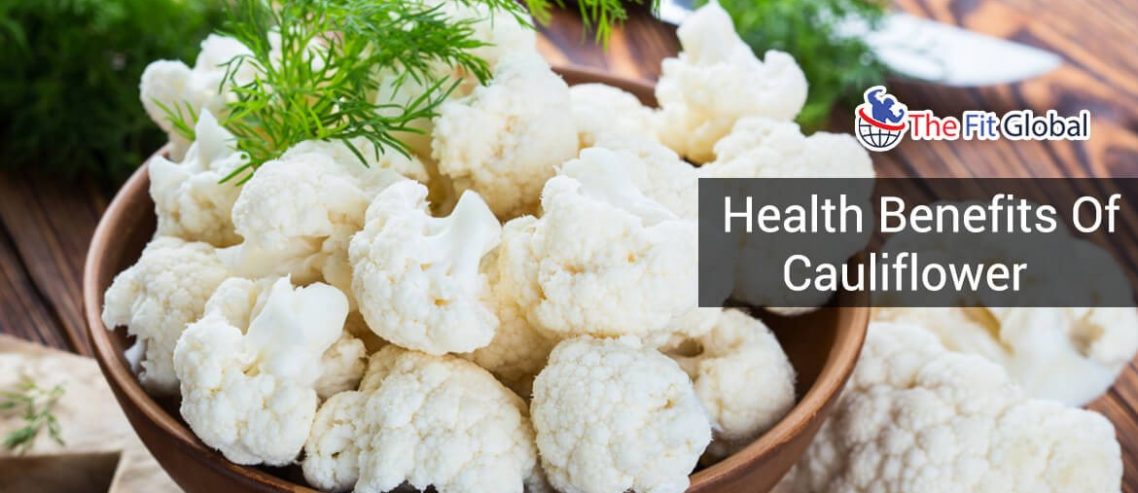
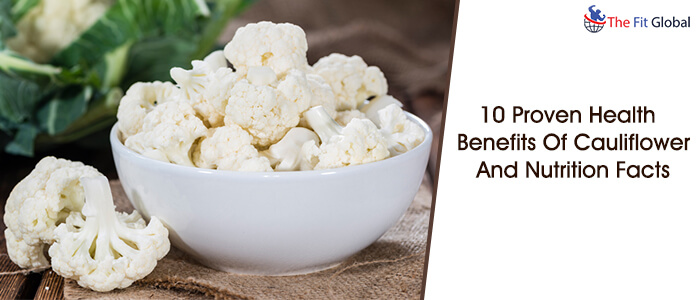

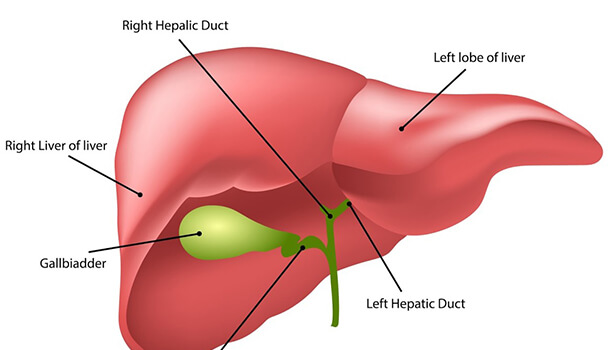
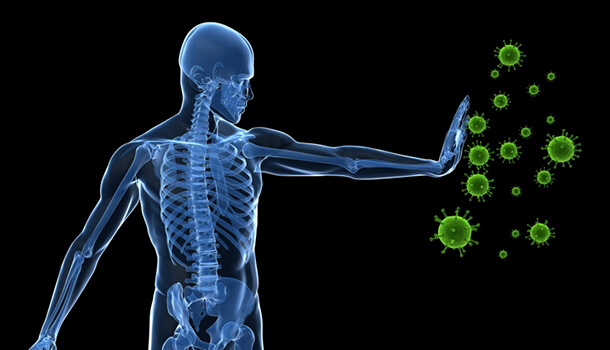

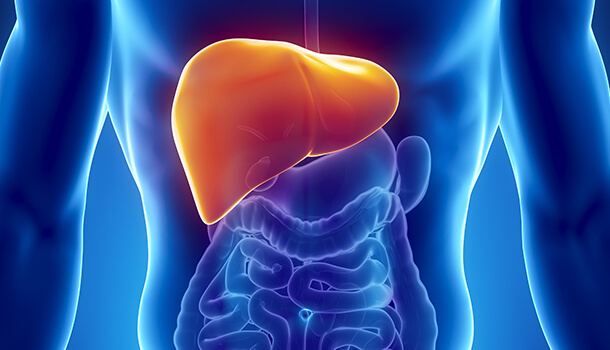





Comments
Leave a Comment